



| Elias Chipilica Doctor of Business Administration Business Administration Angola |
Ian Ramon Noble Master of Education Education Belize |
Carolyn L. Crawford Bachelor of Science Supply Chain and Logistics Belize |
Mbiydzenyuy Yvonne Fola Master of Business Administration Accounting Cameroon |
Gordon Ikome E Udalor Doctor of Science Public Health Cameroon |
Ewang Ahone Brenda Agnes Doctor of Science Public Health Cameroon |
| Luanna Lavenna Clemetson Doctor of Philosop hy Educational Administration and Leadership Canada |
Kamariza Francine Master of Business Administration Business Administration Canada |
Mahamat Lamine Yacoub Doctor of Economics Business and Economics Chad |
Luis Hernan Morales Fuenzalida Doctor of Education Education Chile |
Donal Guerrier Bachelor of Economics Economy and Business Chile |
Colleen Jennifer Shepherd Bachelor of Andragogy Andragogy China |
| Eridania Rodriguez Peguero Doctor of Education Education Dominican Republic |
Candy Rosario De Euler Bachelor of Science Psychology Dominican Republic |
Odali Santana Vicente Doctor of Legal Studies Legal studies Dominican Republic |
Francisco Torres Lebrón Doctor of Science Public Health Dominican Republic |
Ana Carolina Barragan Borja Bachelor of Science Gastronomy Ecuado |
Afomya Deksyos Bachelor of Human Nutrition Nutrition Science Ethiop ia |
| Samuel Feargod Nna Bachelor of Arts Leadership Germany |
Daniel Sukra Master of Science Psychology and Leadership Guyana |
Jose Francisco Salinas Andino Doctor of Philosop hy Food Security and Climate Change Honduras |
Fredis Naul Lopez Escober Bachelor of Business Administration Business Administration Honduras |
Angie Carolina Calderón Lagos Bachelor of Science Electrical Engineering Honduras |
Reina Leticia Rodríguez Zúniga Doctor of Finance Finance Honduras |
| Hazel Wright O'Connor Doctor of Entrepreneurship Entrepreneurship Jamaica |
Tamalee Renea Dwyer Bachelor of Business Administration Business Administration Jamaica |
Shekeilia Francis-Solomon Master of Business Management Business Management Jamaica |
Alfonce Mwendwa Musyoka Bachelor of Management Business Management Kenya |
Brother Frank Lackwell Mwambucha Doctor of Education Education Malawi |
Mohd Farhan Bin Mohd Basri Doctor of Science Renewable Energy Malaysia |
| Alejandro Villarreal Aldaz Doctor of Science Political Science Mexico |
Marie Laetitia Kayisire Doctor of Sociology Sociology Mozambique |
Delita Krauze Bachelor of Accounting Accounting Namibia |
Larai Wazhi Aku-Akai Doctor of Science Public Health Namibia |
Princewill Chukwuemeka Opara Bachelor of Accounting Accounting Nigeria |
Afolabi Akeem Boladale Doctor of Philosop hy Accounting and Auditing Nigeria |
| Josephine Eweinumua Gbobbo Doctor of Philosop hy Human Resource Management Nigeria |
Mojisola Esther Olubummo Doctor of Social and Human Studies Human Resources Nigeria |
Sunday Awoyemi Doctor of Science Business Management Nigeria |
Ibrahim Aderemi Adebayo Doctor of Science Telecommunications Engineering Nigeria |
Simidu Stephen Adeshina Doctor of Science Occupational Health Safety and Environment Nigeria |
Ilupeju, Thomas Omotayo Doctor of Philosop hy Social and Human Development Nigeria |
| Juan Francisco Mogollón Castillo Post-Doctorate of Legal Sciences Legal Sciences Peru |
Alice Rose Kany Bachelor of Proj ect Management Project Management Poland |
Glenda Khodra-Momorelle Master of Social Work Social Work Saint Lucia |
Mohamed Siddiq Raja Abdul Razack Doctor of Education Higher Education Singapore |
Amir Singh Doctor of Education Higher Education Singapore |
Kgatale Siko Alec Malatse Doctor of Healthcare Administration Healthcare Administration South Africa |
| Victor Chipane Maleka Doctor of Science Renewable Energy South Africa |
Butrous Gabriel Kamelo Lado Master of Business Management Business Management South Sudan |
Kumara Wanasinghe Doctor of Legal studies Legal Studies Sri Lanka |
Shernel Constancia Mayou Evans Bachelor of Science Architecture St. Kitts |
Levina Apolinary Kikoyo Doctor of Philosop hy Human Resource Management Tanzania |
Yassin Ali Haji Doctor of Philosop hy Counseling Psychology Tanzania |
| Teodósio Mendonça Master of Education Education and Social Sciences Timor Leste |
Mürüvvet Uygun Doctor of Arts Human Behavior Türkiye |
George Kyemba Kitamirike Master of Arts Sociology Uganda |
Michael Rees Doctor of Psychology Educational Psychology United Kingdom |
Sofia Lopez-Pumarejo Bachelor of Arts Interior Design United Kingdom |
Mohamad Ayach Doctor of Philosop hy Sustainable Parametricism Architecture United Kingdom |
| Gloria Amira Vargas Saavedra Master of Human Develop ment Human Development Psychology USA |
Abbarah Anita Brown Bachelor of Arts Governance and Public Administration USA |
Joël Lorquet Doctor of Communications Communications USA |
Raul Raboso Ortega Bachelor of Education Education USA |
Yimmi Javier Chara Zamora Bachelor of Science Architecture USA |
Ivan Alberto Barillas Bachelor of Science Computer Science USA |
| Robert Joseph Marek Doctor of Sociology Clinical Sociology USA |
Christopher Pierre Master of International Relations International Relations USA |
Victor Daniel Rosenthal Doctor of Philosop hy Epidemiology USA |
Matthew Lowe Doctor of Education Educational Leadership USA |
Ana Maria Vicuña Palacios Bachelor of Business Administration Business Administration USA |
Karen M. Purpura Doctor of Theology Theology USA |
| Maria Jose Diaz Buitron Master of International Business International Business USA |
Viviana Carriles Escudero Master of Science Psychology Sciences USA |
Denise Caltum Saadia Master of Science Psychotherapy for Couples USA |
Tamara Raquel Sacal Gimbel Master of Science Psychotherapy for Couples USA |
Nachume Balas Cojab Master of Science Psychometrics USA |
Yosef Chaim Ben Chimol Master of Science Psychotherapy for Couples USA |
| Karla Ixmucané Mejía Muñoz Doctor of Education Adult Education USA |
Gustavo Adolfo Assing Gomez Bachelor of Science Petroleum Engineering Venezuela |
Andres Maica Bachelor of Science Information Technology Venezuela |
Pham The Hung Doctor of Science Psychology Vietnam |
Shem Kabesha Doctor of Science Health Informatics Zambia |
Evans Chilekwa Master of Science Mining Engineering and Management Zambia |
| Olindah Mashingaidze Bachelor of Business Administration Business Administration and Management Zimbab we |

 Bartlomiej Cech
Bartlomiej Cech Leonard Boyinza Wawa
Leonard Boyinza Wawa Alain Ngoy
Alain Ngoy Collins Agaba
Collins Agaba
We started this 2023 and
many of us thought about
what to do to make us grow as
human beings: start studies or
continue our training. It comes
to mind: What do we do that
gives us good results? To see
what we can do that works for
us, we have to see, what world
we are living in.
We have a pandemic that
we can’t say is over: there are
people who continue to get
infected, so we still have to
be careful. Yes, it’s not like it
was at the beginning, but we
can’t say yet that it’s a thing of
the past. In what world are we
living to study what makes us
feel satisfied? What to study to
get ahead financially?
The world we are living in
is what seems like the end
of two years of an extreme
pandemic plus armed conflict.
Congresses and Congresses,
Forums and more Forums are
held and what is seen is that
the agreements are very far
from materializing.
We can look for what to do
to feel like we grow in this
world. Not to mention politicians;
we already know what
they spend their time on.
Of the latest agreements we
have those of the Davos Forum.
UNESCO has also presented
studies on Education after the
pandemic and what we have
pending for this 2023 and
following.
What is the Davos Forum? The
Davos Forum was held from
january 16 to 20, 2023. The Forum headquarters is always
in Davos, Switzerland, in the
canton of Grisons.
The Forum is held annually
and brings together politicians,
academics, businessmen and
civil society leaders.
The topics that were discussed
and that we considered
very necessary were the
following:
1. The future and the 8 ways
in which technology will affect
life. With the development of
technology, the world will be
cleaner, the facts more intelligent,
efficient and productive.
We will talk about smart
glasses, fusion of physical and
digital spaces and Quantum
Computing.
2. Latin America and global
Risks. It will have problems
growing due to the lack of
consensus due to its political
division.
3. Entrepreneurs and food
security. Nutritious food must
be produced and consumed.
4. Innovation in obtaining
water. Creating smart roofs
and living seawalls.
5. The labor challenges of
the Metaverse or great Information
Platform. It would
solve the problems of staff
training, talent shortages,
employee engagement and
recruitment.
6. Reduction of Inflation.
Digital and green financing
must be reduced.
7. More Sustainable World
Economy. Build data quickly to
be able to solve problems.
8. Climate Transformation.
We are with 1.5 C of global
warming and as we go, we will
reach 2.5 C. we have to work
hard to stay at least at 1.5 C.
9. Improve Trade. Disconnect
real data from political
narratives.
10. Food Safety. Seek to
sustainably feed 8,000 million
people through the application
of biotechnology models with
an agri-food system instead of
animal origin because feeding
of that order generates more
than a third of greenhouse
gases. Biotechnology will help
us create plant-based proteins.
We have Singapore as the first
country in the world to produce
cultured meat.
The group gathered in Davos
represents the community that
organizes the world economically
and financially. Services
for education are derived from
the above aspects.
UNESCO —United Nations
Educational, Scientific and
Cultural Organization— created
The World Education Coalition
to respond to the global crisis
caused by the Covid-19 pandemic
where 1,600 million
students from all countries saw
their classes interrupted.
The closure of the schools
created problems in the learning
of the children in terms of
most of what they should have
acquired in the year.
Going back to school at the end of 2022 hasn’t been easy,
the Coalition is currently focused
on organizing a teaching
that allows to recover the delay.
According to the State of
the Global Education Crisis —A
Path to Recovery Report from
UNESCO, UNICEF and The World
Bank, millions of children and
young people are at risk of not
returning to their schools. The
Report analyzes the learning
lost and what must be done so
that children and young people
can recover what was lost.
“Now is the time to trade
crisis for recovery: and, beyond
recovery, for transformative
and resilient education
systems that truly deliver
learning and well-being for all
children and youth.”
UNESCO, UNICEF and The World Bank. 2021,
Executive Summary. https://www.unicef.org/
media/112166/file/The%20State%20of%20
the%20Global%20Education%20Crisis.pdf
We are starting 2023 and the
analyzes carried out by the
large organizations that we
have dealt with indicate that
there are problems that we
must solve:
1. A shortage of talent.
2. Lack of employee
commitment.
3. The problems of learning
lost due to the closure of
schools.
4. Global warming.
5. The creation of agri-food
due to the greenhouse effect caused by food of animal
origin.
6. Scarcity of water for which
it is necessary to develop
agriculture for arid lands.
Given the aforementioned
facts we have to dedicate ourselves
to studying the disciplines,
the careers that make
life possible for us instead
of the society of such false
narratives that only serve to
enrich certain groups that only
think about their interests.
The great thing about all
this narrative is that there will
be nothing left for those who
think that by following his
speech they will become masters
of the world.
If we continue on the path
marked out, by these narratives
without scientific truth,
we will have a lot to regret for
not looking for the right path
and making this world a possible
world for everyone.
What to study in this 2023?
Atlantic International University
(AIU) makes proposals
for the studies you can do that
will give you the human and
economic growth you need in
the world order in which we
are living.
Science is showing us the
way to go. What Hempel said is
more notorious every day:
“Obviously, the advances in
scientific technology of which
we are proud and which have
imprinted their characteristics
on all aspects of that “age of
science” have simultaneously
raised many new and serious
problems that require urgent
solution. It is quite natural
that, in his desire to deal with
these new problems, man
turns again to science and
scientific technology for help.
But a moment’s reflection will
show us that the problems
that need to be addressed are
not simply technological, but
an intricate complex of technological
and moral problems.
(Hempel, 2005, p. 118)
We have to study
to live better: it’s the
only solution.
BIBLIOGRAPHY. Davos Forum. Retrieved from: https://www.weforum.org/
events/world-economic-forum-annual-meeting-2023?gclid=EAIaIQobChMI-JHFvsjt_
AIVgBqtBh2zRwIOEAAYASAAEgJXc_D_BwE Retrieved from: https://es.weforum.org/events/
world-economic-forum-annual-meeting-2023 | Reimers, Fernando. Educación y
COVID-19: Recuperarse de la pandemia y reconstruir mejor. Retrieved
from: http://www.ibe.unesco.org/sites/default/files/resources/34_educacion_y_covid-19_spa.
pdf | UNESCO: Retrieved from: https://www.unesco.org/es/articles/respuesta-de-la-unescola-
crisis-mundial-de-la-educacion-provocada-por-la-covid-19 | UNICEF: Retrieved from:
https://www.unicef.org/media/112166/file/The%20State%20of%20the%20Global%20Education%
20Crisis.pdf

Background
• Antiretroviral treatment
significantly reduces the risk
of developing HIV-related
complications.
• Delayed linkage to care is a
major barrier to “treatment
as prevention” to reduce HIV
transmission rates.
• The ability to remain in care
is critical to achieving good
health outcomes (suppressed
viral load) and preventing
HIV transmission.
• The CHAMP project contributes
to the fight against HIV/
AIDS in Cameroon by working
with key populations to
achieve the 95-95-95 goal.
Methods
• The analysis presents the
achievements of the viral
load cascade among MSM and
FSW in the CHAMP project.
• This cascade is made up of
an indicator that allows for
the evaluation of adherence
to treatment (TX_CURR)
and indicators that allow
for the assessment of
adherence to ARV treatment,
monitoring of therapeutic
failures and evaluation
of the effectiveness of the
HIV program (VL_Eligible, VL_Done, VL_Documented,
VL_Suppressed).
• Treatment initiation and
adherence monitoring are
ensured by the “case managers
of community-based
organizations”, who, after
a treatment period of six
months (VL_Eligible), take
blood samples from the
beneficiaries being monitored
in order to evaluate
their viral load; the samples
taken (VL_Done) are sent to
the approved laboratories for
analysis and reporting of the
results (VL_Documented).
• The result is considered as
suppressed viral load (undetectable)
if its value is lower
than 1000 copies/ml.
Results
• As of December 2021, viral
load suppression rate was at
96% among MSM and FSW,
with a blood sample collection
rate of 89% and a
coverage rate of 77%.
• A further breakdown of this
viral load cascade per key
population (FSW and MSM)
reveals for FY21 that among
female sex workers (FSW),
out of the 6121 persons
eligible for VL, samples were
collected and 4349 results
were suppressed, giving a VL
suppression rate of 96%.
• With respect to men who
have sex with men (MSM),
they had a treatment current
of 4514, of which 3434 were
eligible for VL in 2021, and
2958 blood samples were
collected. Results obtained after calculation
of the suppression
rate gave
95%.
Discussion
• Communitybased
monitoring
of Key
Populations on
ART has a significant
effect
on viral load
suppression.
• With a viral load
suppression
rate of 96%,
the CHAMP project’s achievements are
above the 95% target defined
in the 95-95-95 goal.
• Efforts still need to be made
to achieve a 100% viral
load sample collection rate
as required by the CHAMP
standard.
• If we intensify the collection
of community samples for
viral load, we can easily close
the gap.
Conclusion
• The result of the viral load
allows us to assess the success
and adherence to the
ART treatment.
• A plea is therefore made to
the partners in charge of the
timely delivery of viral load
results.
REFERENCES. Cameroon Country Operational Plan (COP) 2021. (2021).
Strategic Direction Summary. Yaounde: PEPFAR. | CARE Cameroon. (2019).
Fiche dossier client: etapes de vie. Yaounde, Cameroun: Care International.
| CARE Cameroon. (2019). Key Population-led Health Services: Achieving
and Sustaining HIV Epidemic Control in Cameroon. CARE, 11. | CARE Cameroon.
(2020, Décembre). Continuum de prévention, de soins et de traitement
du VIH/SIDA (CHAMP): Procédures Opérationnelles Standard: Le Lien
entre le Client et la Thérapie ARV, son Initiation et son Maintient dans la
Thérapie. Yaoundé, Centre, Cameroun: CARE International. | CARE Cameroon.
(2020). Continuum of prevention, care and treatment of HIV/AIDS with
most at-risk populations in Cameroon (CHAMP) Q1FY20 Report. Yaounde:
CARE International. | CARE Cameroon. (2020). Continuum of prevention,
care and treatment of HIV/AIDS with most at-risk populations in Cameroon
(CHAMP) Q2FY20 Report. Yaounde: CARE International. | CARE Cameroon.
(2020). Continuum of prevention, care and treatment of HIV/AIDS with most
at-risk populations in Cameroon (CHAMP) Q3FY20 Reports. Yaounde: CARE
International. | CARE Cameroon. (2020). Continuum of prevention, care and
treatment of HIV/AIDS with most at-risk populations in Cameroon (CHAMP)
Q4FY20 Report. Yaounde: CARE International. | CARE Cameroon. (2020, Octobre).
Procédures Opérationnelles Standard: Charge Virale. Continuum of Prevention,
Care and Treatment of HIV/AIDS with Most-At-Risk Populations in
Cameroon (CHAMP Project). Yaoundé, Centre, Cameroun: CARE International.
| CARE Cameroon. (2021). Continuum of prevention, care and treatment
of HIV/AIDS with most at-risk populations in Cameroon (CHAMP) Q1FY21
Report. Yaounde: CARE International. | CARE Cameroon. (2021). Continuum
of prevention, care and treatment of HIV/AIDS with most at-risk populations
in Cameroon (CHAMP) Q2FY21 Report. Yaounde: CARE International.
| CARE Cameroon. (2021). Continuum of prevention, care and treatment
of HIV/AIDS with most at-risk populations in Cameroon (CHAMP) Q3FY21
Report. Yaounde: CARE International. | CARE Cameroon. (2021). Continuum
of prevention, care and treatment of HIV/AIDS with most at-risk populations
in Cameroon (CHAMP) Q4FY21 Report. Yaounde: CARE International. | CARE
Cameroon. (2022). Continuum of prevention, care and treatment of HIV/
AIDS with most at-risk populations in Cameroon (CHAMP) Q1FY22 Report.
Yaounde: CARE International. | CARE Cameroon. (2022). Continuum of
prevention, care and treatment of HIV/AIDS with most at-risk populations in
Cameroon (CHAMP) Q2FY22 Report. Yaounde: CARE International. | US Agency
for International Development (USAID). (2017). 2016 Integrated Biological
and Behavioural Survey (IBBS) among Key Populations in Cameroon : Female
Sex Workers and Men who have Sex with Men. Yaounde: USAID. | USAID.
(2020, June 15). USAID Meeting Targets and Maintaining Epidemic Control.
Central Asia: USAID.GOV. Retrieved from https://www.usaid.gov/central-asia-regional/factsheets/
usaid-meeting-targets-and-maintaining-epidemic-control | USAID. (2021, May 7).
Global Health. Retrieved March 4, 2022, from Google: https://www.usaid.gov/global-health/
health-areas/hiv-and-aids/technical-areas/local-partner-transition
 Problem solving, creativity, and
willingness to take risks are just
a few of the skills developed through
play. There are 6 stages of play during
early childhood, which involve exploring,
being creative, and having fun. [To
avoid putting pressure on children, it is
best to allow each child to go through
these stages at their own pace].
1. Unoccupied Play. At this stage baby
is just making a lot of movements with
their arms, legs, hands, feet, etc. They
are learning about and discovering how
their body moves.
2. Solitary Play. This is the stage
when a child plays alone.
3. Spectator/Onlooker. During this
stage children begin to watch others
playing but do not play with them.
4. Parallel Play. When a child plays
alongside or near others but does not play with them this stage is referred to
as parallel play. [Some neurodivergent
children continue to prefer this type of
play as they grow up].
5. Associate Play. When a child starts
to interact with others during play, but
there is not a large amount of interaction
at this stage. A child might be
doing an activity related to the kids
around him, but might not actually be
interacting with another child. ...
6. Cooperative Play. When a child
plays together with others and has
interest in both the activity and other
children involved in playing they are
participating in cooperative play.
As your child starts playing with
family members and friends, make sure
to teach them about sharing and winning
and losing.
Read full text:
Problem solving, creativity, and
willingness to take risks are just
a few of the skills developed through
play. There are 6 stages of play during
early childhood, which involve exploring,
being creative, and having fun. [To
avoid putting pressure on children, it is
best to allow each child to go through
these stages at their own pace].
1. Unoccupied Play. At this stage baby
is just making a lot of movements with
their arms, legs, hands, feet, etc. They
are learning about and discovering how
their body moves.
2. Solitary Play. This is the stage
when a child plays alone.
3. Spectator/Onlooker. During this
stage children begin to watch others
playing but do not play with them.
4. Parallel Play. When a child plays
alongside or near others but does not play with them this stage is referred to
as parallel play. [Some neurodivergent
children continue to prefer this type of
play as they grow up].
5. Associate Play. When a child starts
to interact with others during play, but
there is not a large amount of interaction
at this stage. A child might be
doing an activity related to the kids
around him, but might not actually be
interacting with another child. ...
6. Cooperative Play. When a child
plays together with others and has
interest in both the activity and other
children involved in playing they are
participating in cooperative play.
As your child starts playing with
family members and friends, make sure
to teach them about sharing and winning
and losing.
Read full text:
 An all-female caribou hunting party
returned home [January 21] to a
heroine’s welcome in the Naskapi community
of Kawawachikamach in northern
Quebec. The seven-woman group
left the community on Jan. 13 with three
male guides and travelled, in total, more
than 1,500 kilometres by snowmobile,
over eight days from Kawawachikamach
to the far eastern reaches of Cree territory
near Caniapiscau and back again.
“This is something that I’ve always
wanted to do,” said Louise Shecanapish,
who organized the expedition. She
had been on a men’s hunting trip about
10 years earlier as the expedition cook.
“I’m a strong believer that … if men
can do it, women can too.”
In total, the group harvested 28 caribou
between Jan. 13 and Jan. 21.
Shecanapish works as the cultural
co-ordinator for Kawawachikamach,
a community of approximately 650
people north of Sept-Îles on the north
shore of Quebec. She admits to being
anxious initially, as the expedition was
taking shape. “It’s a really tough trip.
I know how these trips are and they’re
very challenging,” said Shecanapish,
adding there can be hours lost in the
slush and very demanding physical issues
to deal with. None of the women
were experienced hunters and two of
them had never been on a snowmobile
expedition before.
The group was given five of the
harvested caribou to be used as part of
some local traditional-skill workshops.
All parts of the animal will used, said
Annie Vollant. ...
Read full text:
An all-female caribou hunting party
returned home [January 21] to a
heroine’s welcome in the Naskapi community
of Kawawachikamach in northern
Quebec. The seven-woman group
left the community on Jan. 13 with three
male guides and travelled, in total, more
than 1,500 kilometres by snowmobile,
over eight days from Kawawachikamach
to the far eastern reaches of Cree territory
near Caniapiscau and back again.
“This is something that I’ve always
wanted to do,” said Louise Shecanapish,
who organized the expedition. She
had been on a men’s hunting trip about
10 years earlier as the expedition cook.
“I’m a strong believer that … if men
can do it, women can too.”
In total, the group harvested 28 caribou
between Jan. 13 and Jan. 21.
Shecanapish works as the cultural
co-ordinator for Kawawachikamach,
a community of approximately 650
people north of Sept-Îles on the north
shore of Quebec. She admits to being
anxious initially, as the expedition was
taking shape. “It’s a really tough trip.
I know how these trips are and they’re
very challenging,” said Shecanapish,
adding there can be hours lost in the
slush and very demanding physical issues
to deal with. None of the women
were experienced hunters and two of
them had never been on a snowmobile
expedition before.
The group was given five of the
harvested caribou to be used as part of
some local traditional-skill workshops.
All parts of the animal will used, said
Annie Vollant. ...
Read full text:
 Consuming soy flour rich in the
protein B-conglycinin has the
potential to reduce LDL cholesterol
levels and lower the risk of metabolic
diseases such as atherosclerosis and
fatty liver disease, said Elvira de Mejia,
a professor of food science and human
nutrition at the University of Illinois
Urbana-Champaign and the corresponding
author of the study.
Published in the journal Antioxidants,
the study was co-written by Neal A.
Bringe, a food scientist with Benson Hill
Company; and Miguel Rebollo Hernanz,
who at the time of the research was a
visiting scholar at the U. of I. Rebollo
Hernanz is the first author of the paper.
Scientists have long known of soybeans’
cholesterol-lowering properties
and lipid-regulating effects, and the
current project investigated two soy
proteins thought to be responsible for
these outcomes —glycinin and Bconglycinin—
and found the latter to be
particularly significant. ...
The team defatted and ground into
flour 19 soybean varieties, each of
which contained differing proportions
of the two proteins. The proportion of
glycinin in these varieties ranged from
22%-60% while the B-conglycinin ratio
ranged from 22%-52%.
Using a simulation of the human digestive
process validated by other studies,
the team sequentially mixed the
defatted soybean flours with various
fluids and enzimes ...
...
Consuming soy flour rich in the
protein B-conglycinin has the
potential to reduce LDL cholesterol
levels and lower the risk of metabolic
diseases such as atherosclerosis and
fatty liver disease, said Elvira de Mejia,
a professor of food science and human
nutrition at the University of Illinois
Urbana-Champaign and the corresponding
author of the study.
Published in the journal Antioxidants,
the study was co-written by Neal A.
Bringe, a food scientist with Benson Hill
Company; and Miguel Rebollo Hernanz,
who at the time of the research was a
visiting scholar at the U. of I. Rebollo
Hernanz is the first author of the paper.
Scientists have long known of soybeans’
cholesterol-lowering properties
and lipid-regulating effects, and the
current project investigated two soy
proteins thought to be responsible for
these outcomes —glycinin and Bconglycinin—
and found the latter to be
particularly significant. ...
The team defatted and ground into
flour 19 soybean varieties, each of
which contained differing proportions
of the two proteins. The proportion of
glycinin in these varieties ranged from
22%-60% while the B-conglycinin ratio
ranged from 22%-52%.
Using a simulation of the human digestive
process validated by other studies,
the team sequentially mixed the
defatted soybean flours with various
fluids and enzimes ...
...
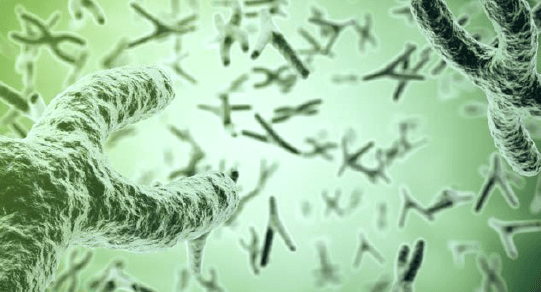 Telomeres —the protective caps at
the tips of chromosomes— can encode
two proteins, something that was
previously thought impossible, new
research has suggested. The discovery
of genetic information coding for these
proteins, one of which is elevated in
some human cancers, could have huge
ramifications for the fields of health,
medicine, and cell biology.
“Discovering that telomeres encode
two novel signaling proteins will
change our understanding of cancer,
aging, and how cells communicate with
other cells,” study author Jack Griffith,
the Kenan Distinguished Professor of
Microbiology and Immunology at the
University of North Carolina at Chapel
Hill, said in a statement. “Based on
our research, we think simple blood tests for these proteins could provide a
valuable screen for certain cancers and
other human diseases,” Griffith added.
“These tests also could provide a measure
of ‘telomere health,’ because we
know telomeres shorten with age.”
Telomeres are regions of repetitive
DNA sequences found at the ends of
chromosomes that play an important
part in the aging process. When a cell
divides, telomeres shorten, eventually
becoming so stubby that division ceases
and the cell dies. This mechanism ensures
that cells cannot build up enough
mutations over their lifespan to become
problematic, and is a neat defense
against cancer, which is characterized
by rapid cell division. ...
Read full text
Telomeres —the protective caps at
the tips of chromosomes— can encode
two proteins, something that was
previously thought impossible, new
research has suggested. The discovery
of genetic information coding for these
proteins, one of which is elevated in
some human cancers, could have huge
ramifications for the fields of health,
medicine, and cell biology.
“Discovering that telomeres encode
two novel signaling proteins will
change our understanding of cancer,
aging, and how cells communicate with
other cells,” study author Jack Griffith,
the Kenan Distinguished Professor of
Microbiology and Immunology at the
University of North Carolina at Chapel
Hill, said in a statement. “Based on
our research, we think simple blood tests for these proteins could provide a
valuable screen for certain cancers and
other human diseases,” Griffith added.
“These tests also could provide a measure
of ‘telomere health,’ because we
know telomeres shorten with age.”
Telomeres are regions of repetitive
DNA sequences found at the ends of
chromosomes that play an important
part in the aging process. When a cell
divides, telomeres shorten, eventually
becoming so stubby that division ceases
and the cell dies. This mechanism ensures
that cells cannot build up enough
mutations over their lifespan to become
problematic, and is a neat defense
against cancer, which is characterized
by rapid cell division. ...
Read full text
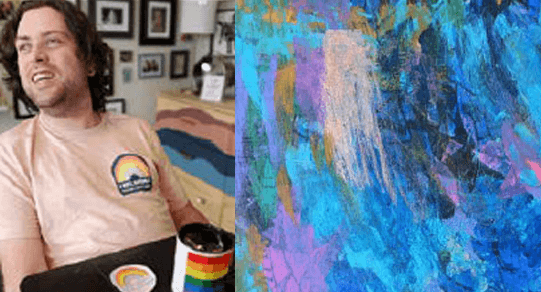 As the world went into
lockdown in March
2020, David Wudel, 33,
picked up a brush and
started painting. He called it
a hobby out of necessity. Not
only was the Calgary, Alberta
(Canada), native with cerebral
palsy feeling pent up and depressed
as his world was suddenly restricted to
his apartment, but he was still dealing
with mixed emotions and anxiety
stemming from his coming out as a gay
man just a year earlier in June 2019. His family was
very supportive
when he came
out and it was
actually his older
sister’s wedding
to her girlfriend
that inspired him
to tell them his
own truth. But
it was painting
that helped him
deal with his own residual feelings of
self-acceptance.
“Now I was out to the world, and
it was up to me to accept who I was
because for so long I suppressed it.
Having cerebral palsy and being a
full-time wheelchair user is a label
within itself, and for many years
I didn’t want to be known as the
disabled gay guy,” says Wudel. “Not that I’m ashamed of my CP,
but there’s still a stigma
around disability and being
part of one minority was
hard enough.”
When Wudel picked up a
paint brush on a whim, all
that emotion started to flow
out of it. That first painting, called
Colourful Chaos, was marked by what
would become his trademark going
forward: bright colors, bold strokes
and abstract, interpretive forms. It fit
exactly how he felt as the world entered
lockdown. Its description
reads in
part, “This painting
seeks to express
the idea that
no matter how
chaotic things are,
there are always
colourful nuances
and beauty everywhere,
even if
hidden under the
surface.” ... He put that first painting
on Instagram and within the first week,
he’d sold it for $50. He has only sold
a few since then, ranging from $50 to
$200, but he now has his own website,
Wheel Painting Co. —named after the
six wheels of his wheelchair he gets
around on everyday — and 14,900 followers
on Instagram. ...
Read full text:
As the world went into
lockdown in March
2020, David Wudel, 33,
picked up a brush and
started painting. He called it
a hobby out of necessity. Not
only was the Calgary, Alberta
(Canada), native with cerebral
palsy feeling pent up and depressed
as his world was suddenly restricted to
his apartment, but he was still dealing
with mixed emotions and anxiety
stemming from his coming out as a gay
man just a year earlier in June 2019. His family was
very supportive
when he came
out and it was
actually his older
sister’s wedding
to her girlfriend
that inspired him
to tell them his
own truth. But
it was painting
that helped him
deal with his own residual feelings of
self-acceptance.
“Now I was out to the world, and
it was up to me to accept who I was
because for so long I suppressed it.
Having cerebral palsy and being a
full-time wheelchair user is a label
within itself, and for many years
I didn’t want to be known as the
disabled gay guy,” says Wudel. “Not that I’m ashamed of my CP,
but there’s still a stigma
around disability and being
part of one minority was
hard enough.”
When Wudel picked up a
paint brush on a whim, all
that emotion started to flow
out of it. That first painting, called
Colourful Chaos, was marked by what
would become his trademark going
forward: bright colors, bold strokes
and abstract, interpretive forms. It fit
exactly how he felt as the world entered
lockdown. Its description
reads in
part, “This painting
seeks to express
the idea that
no matter how
chaotic things are,
there are always
colourful nuances
and beauty everywhere,
even if
hidden under the
surface.” ... He put that first painting
on Instagram and within the first week,
he’d sold it for $50. He has only sold
a few since then, ranging from $50 to
$200, but he now has his own website,
Wheel Painting Co. —named after the
six wheels of his wheelchair he gets
around on everyday — and 14,900 followers
on Instagram. ...
Read full text:
 Honda Walking Assist Device,
originally Honda Walking Assist–
Stride Manager, is a hip only powered
exoskeleton. Its goal is to facilitate
walking by providing additional force
to swing the legs with each step. In 2015, the Honda Walking Assist
Device (temporarily?) went on lease
sale to businesses in Japan. In 2022,
this is the most asked/sought-after
exoskeleton on ExR (Exoskeleton Report).
The Honda Walking Assist Device
(Stride Manager) builds on the company’s
experience with walking robots
(example ASIMO).The Walking Assist
Device has been in research since 1999.
This exo is based on the inverted
pendulum model, which is a theory
of bipedal walking and is designed as
a device to be used in the training of
walking. The onboard controller activates
motors based on data obtained
from hip angle sensors. The main
goal is to improve the symmetry of the timing of each leg lifting from the
ground and extending forward. It also
promotes a longer stride for easier
walking.
The Honda wearable robot weights
2.7 kg (6 lb). It is built using proprietary
motors and control system. It is
a minimalistic design attached to the
body with simple straps. The device is
made to be highly adaptable to various
body sizes. ...
Read full text
Honda Walking Assist Device,
originally Honda Walking Assist–
Stride Manager, is a hip only powered
exoskeleton. Its goal is to facilitate
walking by providing additional force
to swing the legs with each step. In 2015, the Honda Walking Assist
Device (temporarily?) went on lease
sale to businesses in Japan. In 2022,
this is the most asked/sought-after
exoskeleton on ExR (Exoskeleton Report).
The Honda Walking Assist Device
(Stride Manager) builds on the company’s
experience with walking robots
(example ASIMO).The Walking Assist
Device has been in research since 1999.
This exo is based on the inverted
pendulum model, which is a theory
of bipedal walking and is designed as
a device to be used in the training of
walking. The onboard controller activates
motors based on data obtained
from hip angle sensors. The main
goal is to improve the symmetry of the timing of each leg lifting from the
ground and extending forward. It also
promotes a longer stride for easier
walking.
The Honda wearable robot weights
2.7 kg (6 lb). It is built using proprietary
motors and control system. It is
a minimalistic design attached to the
body with simple straps. The device is
made to be highly adaptable to various
body sizes. ...
Read full text
 In the late 2000s, Carlos Monteiro
noticed ... Brazilians were buying way
less oil, sugar, and salt than they had in
the past. Despite this, people were piling
on the pounds. ...
Brazilians hadn’t really cut down on
fat, salt, and sugar —they were just
consuming these nutrients in an entirely
new form. People were swapping traditional
foods ... for prepackaged bread,
sweets, sausages, and other snacks. ...
Monteiro created a new food classification
system —called NOVA— that
breaks things down into four categories.
Minimally processed foods, such
as fruits, vegetables, and unprocessed
meats. Processed culinary ingredients
(oils, butter, and sugar). Processed
foods (tinned vegetables, smoked
meats, freshly baked bread, and simple
cheeses). And then there are Ultraprocessed
foods. ...
There are a bunch of reasons why
a product might fall into the ultraprocessed
category. It might be made
using “industrial processes” like extrusion,
interesterification, carbonation,
hydrogenation, molding, or prefrying.
It could contain additives designed to
make it hyper-palatable, or preservatives
that help it stay stable at room
temperature. Or it might contain high
levels of fat, sugar, and salt in combinations
that aren’t usually found in
whole foods. What all the foods share,
Monteiro says, is that they are designed
to displace freshly prepared dishes and
keep you coming back for more, and
more, and more. ...
Read full text:
In the late 2000s, Carlos Monteiro
noticed ... Brazilians were buying way
less oil, sugar, and salt than they had in
the past. Despite this, people were piling
on the pounds. ...
Brazilians hadn’t really cut down on
fat, salt, and sugar —they were just
consuming these nutrients in an entirely
new form. People were swapping traditional
foods ... for prepackaged bread,
sweets, sausages, and other snacks. ...
Monteiro created a new food classification
system —called NOVA— that
breaks things down into four categories.
Minimally processed foods, such
as fruits, vegetables, and unprocessed
meats. Processed culinary ingredients
(oils, butter, and sugar). Processed
foods (tinned vegetables, smoked
meats, freshly baked bread, and simple
cheeses). And then there are Ultraprocessed
foods. ...
There are a bunch of reasons why
a product might fall into the ultraprocessed
category. It might be made
using “industrial processes” like extrusion,
interesterification, carbonation,
hydrogenation, molding, or prefrying.
It could contain additives designed to
make it hyper-palatable, or preservatives
that help it stay stable at room
temperature. Or it might contain high
levels of fat, sugar, and salt in combinations
that aren’t usually found in
whole foods. What all the foods share,
Monteiro says, is that they are designed
to displace freshly prepared dishes and
keep you coming back for more, and
more, and more. ...
Read full text:
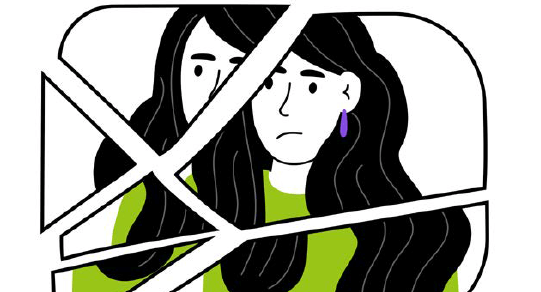 Dissociative disorders (DD) involve
problems with memory, identity,
emotion, perception, behavior and sense
of self, and can disrupt every area of
mental functioning. Such as the experience
of detachment or feeling as if one is
outside one’s body, and loss of memory
or amnesia. DD are frequently associated
with previous experience of trauma. 1 Dissociative identity disorder. It is
associated with overwhelming experiences,
traumatic events and/or abuse
that occurred in childhood. Dissociative
identity disorder was previously referred
to as multiple personality disorder. 2 Dissociative amnesia. It involves
not being able to recall information
about oneself (not normal forgetting).
This amnesia is usually related to a
traumatic or stressful event and may be Localized (unable to remember an event
or period of time; most common type),
Selective (unable to remember a specific
aspect of an event or some events
within a period of time), and Generalized
(complete loss of identity and life
history; it is rare). 3 Depersonalization/derealization
disorder. It involves significant
ongoing or recurring experience of one
or both conditions: Depersonalization
(experiences of unreality or detachment
from one’s mind, self or body;
people may feel as if they are outside
their bodies), Derealization (experiences
of unreality or detachment from
one’s surroundings; people may feel
as what is around them is not real. ...
Read full text:
Dissociative disorders (DD) involve
problems with memory, identity,
emotion, perception, behavior and sense
of self, and can disrupt every area of
mental functioning. Such as the experience
of detachment or feeling as if one is
outside one’s body, and loss of memory
or amnesia. DD are frequently associated
with previous experience of trauma. 1 Dissociative identity disorder. It is
associated with overwhelming experiences,
traumatic events and/or abuse
that occurred in childhood. Dissociative
identity disorder was previously referred
to as multiple personality disorder. 2 Dissociative amnesia. It involves
not being able to recall information
about oneself (not normal forgetting).
This amnesia is usually related to a
traumatic or stressful event and may be Localized (unable to remember an event
or period of time; most common type),
Selective (unable to remember a specific
aspect of an event or some events
within a period of time), and Generalized
(complete loss of identity and life
history; it is rare). 3 Depersonalization/derealization
disorder. It involves significant
ongoing or recurring experience of one
or both conditions: Depersonalization
(experiences of unreality or detachment
from one’s mind, self or body;
people may feel as if they are outside
their bodies), Derealization (experiences
of unreality or detachment from
one’s surroundings; people may feel
as what is around them is not real. ...
Read full text:
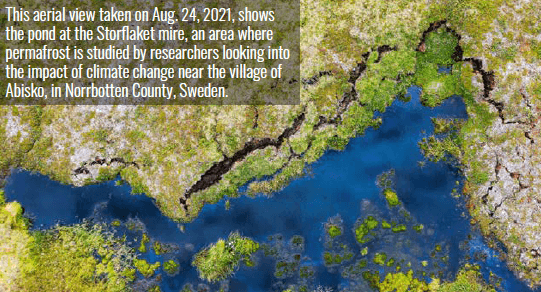 Recent climate projections may be
underestimating the pace of global
warming in an atmosphere damaged by
greenhouse gas emissions, because the
interaction of powerful climate feedback
loops that can accelerate warming
are not well-represented in key climate
models, an international team of scientists
concluded in a study published
[February 17, 2023] in the journal One
Earth. Their findings suggest that efforts
to reduce emissions require even
more urgency to avoid worst-case
climate outcomes, the team reported.
“If amplifying feedbacks are strong
enough, the result is likely tragic climate
change moving beyond anything
humans can control,” said co-author
Bill Ripple, an ecologist at Oregon
State University, and co-founder of the
Alliance of World Scientists, which has
26,000 members in 180 countries urging
decisive implementation of policies
to curb global warming and meet the
commitments governments made under
the 2015 Paris Agreement. ...
Recent evaluations conclude that, if
countries meet the emissions-reduction
targets they’ve set for themselves,
the average global temperature would
warm 2.7 degrees Celsius from preindustrial
temperatures by 2100, which
would have catastrophic impacts for
people and ecosystems. But if some of
the feedback loops shown in the new
paper accelerate, warming could soar
well above that level, toward 4 degrees
Celsius, by the end of the century. ...
Recent climate projections may be
underestimating the pace of global
warming in an atmosphere damaged by
greenhouse gas emissions, because the
interaction of powerful climate feedback
loops that can accelerate warming
are not well-represented in key climate
models, an international team of scientists
concluded in a study published
[February 17, 2023] in the journal One
Earth. Their findings suggest that efforts
to reduce emissions require even
more urgency to avoid worst-case
climate outcomes, the team reported.
“If amplifying feedbacks are strong
enough, the result is likely tragic climate
change moving beyond anything
humans can control,” said co-author
Bill Ripple, an ecologist at Oregon
State University, and co-founder of the
Alliance of World Scientists, which has
26,000 members in 180 countries urging
decisive implementation of policies
to curb global warming and meet the
commitments governments made under
the 2015 Paris Agreement. ...
Recent evaluations conclude that, if
countries meet the emissions-reduction
targets they’ve set for themselves,
the average global temperature would
warm 2.7 degrees Celsius from preindustrial
temperatures by 2100, which
would have catastrophic impacts for
people and ecosystems. But if some of
the feedback loops shown in the new
paper accelerate, warming could soar
well above that level, toward 4 degrees
Celsius, by the end of the century. ...
 William Mathis wrote in an article
for Bloomberg that renewableenergy
producers have long touted the
promise of cheap electricity, an assurance
that’s helped them eat into
the dominance of fossil fuels. But the
pledge has gone too far, according to the
world’s biggest wind-turbine maker.
Manufacturers such as Vestas Wind
Systems A/S are seeing losses pile up
as orders collapse at a time when they
should be capitalizing on the turmoil
in natural-gas markets. To blame
—at least in part— is the industry’s
insistence that clean electricity can
only get cheaper, according to Henrik
Andersen, chief executive officer of the
Danish wind giant.
“It made some people make the
wrong assumption that energy and electricity should become free,” Andersen
said in an interview in London.
“We created the perception to some
extent. So we are to blame for it. That
was a mistake.”
While wind-power costs have steadily
declined, to the point where many
people concluded prices would eventually
hit zero, technological advances can
only go so far. Now the industry needs
to charge more so that it can deliver the
massive scale-up needed for countries
to achieve ambitious climate goals.
Soaring commodity costs and supplychain
bottlenecks have wiped out profits
for much of the wind industry this year.
Vestas expects its profit margin to be
around -5% in 2022. ...
Read full text:
William Mathis wrote in an article
for Bloomberg that renewableenergy
producers have long touted the
promise of cheap electricity, an assurance
that’s helped them eat into
the dominance of fossil fuels. But the
pledge has gone too far, according to the
world’s biggest wind-turbine maker.
Manufacturers such as Vestas Wind
Systems A/S are seeing losses pile up
as orders collapse at a time when they
should be capitalizing on the turmoil
in natural-gas markets. To blame
—at least in part— is the industry’s
insistence that clean electricity can
only get cheaper, according to Henrik
Andersen, chief executive officer of the
Danish wind giant.
“It made some people make the
wrong assumption that energy and electricity should become free,” Andersen
said in an interview in London.
“We created the perception to some
extent. So we are to blame for it. That
was a mistake.”
While wind-power costs have steadily
declined, to the point where many
people concluded prices would eventually
hit zero, technological advances can
only go so far. Now the industry needs
to charge more so that it can deliver the
massive scale-up needed for countries
to achieve ambitious climate goals.
Soaring commodity costs and supplychain
bottlenecks have wiped out profits
for much of the wind industry this year.
Vestas expects its profit margin to be
around -5% in 2022. ...
Read full text:
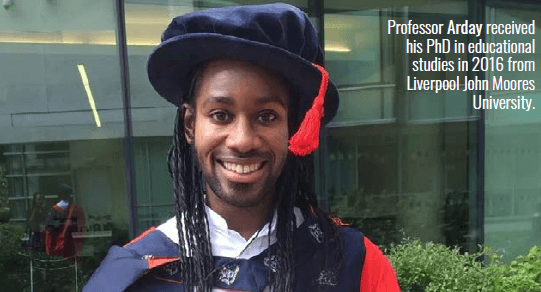 Diagnosed with autism and global
development delay in his early
years, Jason Arday was unable to speak
until he was 11 years old and could not
read or write until he was 18. Now aged
37, he is about to become the youngest
black person ever appointed to a professorship
at the University of Cambridge.
Young Jason fervently questioned
the world around him. “Why are some
people homeless?” “Why is there war?”
Born and raised in Clapham, south-west
London, Prof Arday, a sociologist, says
formative moments included watching
Nelson Mandela’s release from prison
on television ...
His mother played a critical role in
developing his self-confidence and
skills. She introduced him to a wide
range of music in the hope this would
aid his conceptualisation of language. ... Supported by his mentor, Sandro
Sandri, Prof Arday finally began to read
and write in his late teens. ... He then
studied Physical Education and Education
Studies at the University of Surrey
before training as a PE teacher. Growing
up in a relatively disadvantaged
area and then working as a school
teacher gave him first-hand insight
into the systemic inequalities that
youngsters belonging to ethnic minorities
faced in education. ...
At the age of 22, Prof Arday became
interested in the idea of carrying out
postgraduate study. ... During the day,
Prof Arday worked as a PE lecturer in
higher education. In the evening and
night, his hours were filled drafting academic
papers and studying sociology.
Diagnosed with autism and global
development delay in his early
years, Jason Arday was unable to speak
until he was 11 years old and could not
read or write until he was 18. Now aged
37, he is about to become the youngest
black person ever appointed to a professorship
at the University of Cambridge.
Young Jason fervently questioned
the world around him. “Why are some
people homeless?” “Why is there war?”
Born and raised in Clapham, south-west
London, Prof Arday, a sociologist, says
formative moments included watching
Nelson Mandela’s release from prison
on television ...
His mother played a critical role in
developing his self-confidence and
skills. She introduced him to a wide
range of music in the hope this would
aid his conceptualisation of language. ... Supported by his mentor, Sandro
Sandri, Prof Arday finally began to read
and write in his late teens. ... He then
studied Physical Education and Education
Studies at the University of Surrey
before training as a PE teacher. Growing
up in a relatively disadvantaged
area and then working as a school
teacher gave him first-hand insight
into the systemic inequalities that
youngsters belonging to ethnic minorities
faced in education. ...
At the age of 22, Prof Arday became
interested in the idea of carrying out
postgraduate study. ... During the day,
Prof Arday worked as a PE lecturer in
higher education. In the evening and
night, his hours were filled drafting academic
papers and studying sociology.
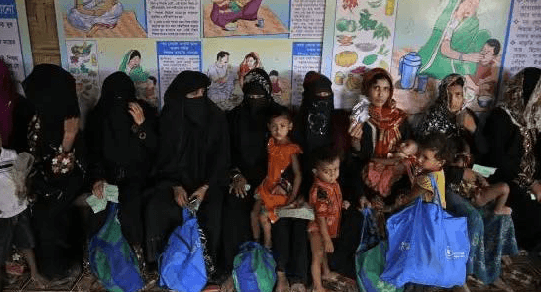 On March 1, just before Ramadan,
the UN World Food Program (WFP)
will slash monthly food rations for Rohingya
refugees in Bangladesh’s Cox’s
Bazar by almost 20 per cent, from $12
vouchers to $10. The reason: a US$125
million funding shortfall.
Now, $2 less per month may not
seem much for you and me. But for the
nearly one million Rohingya refugees in
Cox’s Bazar, who have largely relied on
humanitarian assistance since they fled
genocidal attacks on their villages by
Myanmar’s army more than five years
ago, $2 less a month might mean a
meal less a day.
Already, the refugees’ living conditions
were precarious, with malnutrition
affecting one out of eight children.
More than a third have stunted
growth as a result and 40 percent of pregnant and breastfeeding women are
anaemic. Even before the ration cuts,
families had been forced to take out
loans to pay for food. Making matters
worse is the Bangladesh government’s
determination to restrict refugees from
seeking paid work. ...
Even WFP fears the consequences of its
decision, warning that with “each ration
cut, malnutrition will certainly rise.
With each ration cut, families will increasingly
resort to dangerous strategies
to cope.” But seeing that its pledges for
funding for the Rohingya humanitarian
crisis received less than half the US$881
million needed for the year, WFP was left
with no choice, it says.
Compare this with the billions of dollars
that have been pledged in humanitarian
aid alone to Ukraine ...
On March 1, just before Ramadan,
the UN World Food Program (WFP)
will slash monthly food rations for Rohingya
refugees in Bangladesh’s Cox’s
Bazar by almost 20 per cent, from $12
vouchers to $10. The reason: a US$125
million funding shortfall.
Now, $2 less per month may not
seem much for you and me. But for the
nearly one million Rohingya refugees in
Cox’s Bazar, who have largely relied on
humanitarian assistance since they fled
genocidal attacks on their villages by
Myanmar’s army more than five years
ago, $2 less a month might mean a
meal less a day.
Already, the refugees’ living conditions
were precarious, with malnutrition
affecting one out of eight children.
More than a third have stunted
growth as a result and 40 percent of pregnant and breastfeeding women are
anaemic. Even before the ration cuts,
families had been forced to take out
loans to pay for food. Making matters
worse is the Bangladesh government’s
determination to restrict refugees from
seeking paid work. ...
Even WFP fears the consequences of its
decision, warning that with “each ration
cut, malnutrition will certainly rise.
With each ration cut, families will increasingly
resort to dangerous strategies
to cope.” But seeing that its pledges for
funding for the Rohingya humanitarian
crisis received less than half the US$881
million needed for the year, WFP was left
with no choice, it says.
Compare this with the billions of dollars
that have been pledged in humanitarian
aid alone to Ukraine ...
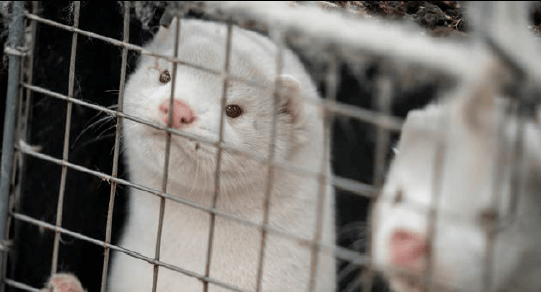 A new variant of avian influenza appears
capable of spreading among
mammals, highlighting the need for
more proactive surveillance, experts
said. Early last October, the mink on
a fur farm in Spain suddenly began to
fall ill. They stopped eating and began
salivating excessively. They became
clumsy, started to experience tremors
and developed bloody snouts.
At first, experts suspected that the
coronavirus might be to blame. It was
a reasonable assumption; since the beginning
of the Covid-19 pandemic, the
virus has repeatedly found its way onto
mink farms, sparking large animal
outbreaks, triggering mass mink culls
and prompting temporary moratoriums
on mink farming.
But it was not the coronavirus that had infiltrated the Spanish mink farm,
scientists soon discovered. It was H5N1,
a highly pathogenic strain of avian
influenza. ... The outbreak “confirmed
a fear that I had” that the virus could
spread efficiently among mammals,
said Dr. Thijs Kuiken, a veterinary pathologist
at Erasmus University Medical
Center in the Netherlands.
There is no evidence that the mink,
which were all culled, transmitted the
virus to humans, and experts stressed
that the outbreak was not a cause for
panic. But it is a reminder of some of
the risks posed by mink farms —places
in which large numbers of susceptible
animals are housed in facilities with
porous borders to the outside world ...
A new variant of avian influenza appears
capable of spreading among
mammals, highlighting the need for
more proactive surveillance, experts
said. Early last October, the mink on
a fur farm in Spain suddenly began to
fall ill. They stopped eating and began
salivating excessively. They became
clumsy, started to experience tremors
and developed bloody snouts.
At first, experts suspected that the
coronavirus might be to blame. It was
a reasonable assumption; since the beginning
of the Covid-19 pandemic, the
virus has repeatedly found its way onto
mink farms, sparking large animal
outbreaks, triggering mass mink culls
and prompting temporary moratoriums
on mink farming.
But it was not the coronavirus that had infiltrated the Spanish mink farm,
scientists soon discovered. It was H5N1,
a highly pathogenic strain of avian
influenza. ... The outbreak “confirmed
a fear that I had” that the virus could
spread efficiently among mammals,
said Dr. Thijs Kuiken, a veterinary pathologist
at Erasmus University Medical
Center in the Netherlands.
There is no evidence that the mink,
which were all culled, transmitted the
virus to humans, and experts stressed
that the outbreak was not a cause for
panic. But it is a reminder of some of
the risks posed by mink farms —places
in which large numbers of susceptible
animals are housed in facilities with
porous borders to the outside world ...
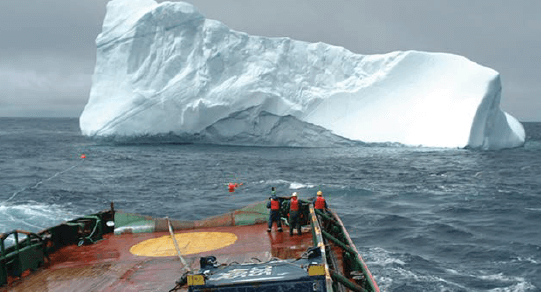 From May to August, [in Iceberg
Alley, from the coast of Labrador
to the southeast coast of the island of
Newfoundland] the sun breaks through
the clouds and warms the freezing
waves swirling off the coast.
In this brief window, ... icebergs fill
the Labrador Sea. The Arctic ice pack undergoes
its seasonal melt and Baffin Bay
thaws, allowing the frozen mountains to
continue their journey toward the Atlantic.
Most break off of glaciers on the west
coast of Greenland —what glaciologists
call “calving.” Speakers of a variety of
languages, from Afrikaans to Uzbek, use
the same word to define the process, as if
the icy masses are the living offspring of
glaciers. In Albanian, Farsi, and Italian,
it is even more explicit: Glaciers “give
birth.” Across cultures and languages, icebergs are conceptualized like wild
cattle or horses roaming the maritime
frontier in our rhetorical imagination. ...
This is when iceberg cowboys head to
sea. These rough-and-tumble mariners
earn their living wrangling icebergs —
sometimes to subdue and capture the
leviathans, other times to herd the ice
in new directions. They are undaunted
by warnings issued by the International
Ice Patrol. ...
Every time an iceberg floats by, an
ancient piece of the past is carried
along with it. Iceberg ice is not just primeval;
it is also pristine. Glaciologists
talk about “singing” icebergs, too.
Once an Arctic iceberg calves, it will
typically live for three to six years, depending
on its ...
From May to August, [in Iceberg
Alley, from the coast of Labrador
to the southeast coast of the island of
Newfoundland] the sun breaks through
the clouds and warms the freezing
waves swirling off the coast.
In this brief window, ... icebergs fill
the Labrador Sea. The Arctic ice pack undergoes
its seasonal melt and Baffin Bay
thaws, allowing the frozen mountains to
continue their journey toward the Atlantic.
Most break off of glaciers on the west
coast of Greenland —what glaciologists
call “calving.” Speakers of a variety of
languages, from Afrikaans to Uzbek, use
the same word to define the process, as if
the icy masses are the living offspring of
glaciers. In Albanian, Farsi, and Italian,
it is even more explicit: Glaciers “give
birth.” Across cultures and languages, icebergs are conceptualized like wild
cattle or horses roaming the maritime
frontier in our rhetorical imagination. ...
This is when iceberg cowboys head to
sea. These rough-and-tumble mariners
earn their living wrangling icebergs —
sometimes to subdue and capture the
leviathans, other times to herd the ice
in new directions. They are undaunted
by warnings issued by the International
Ice Patrol. ...
Every time an iceberg floats by, an
ancient piece of the past is carried
along with it. Iceberg ice is not just primeval;
it is also pristine. Glaciologists
talk about “singing” icebergs, too.
Once an Arctic iceberg calves, it will
typically live for three to six years, depending
on its ...
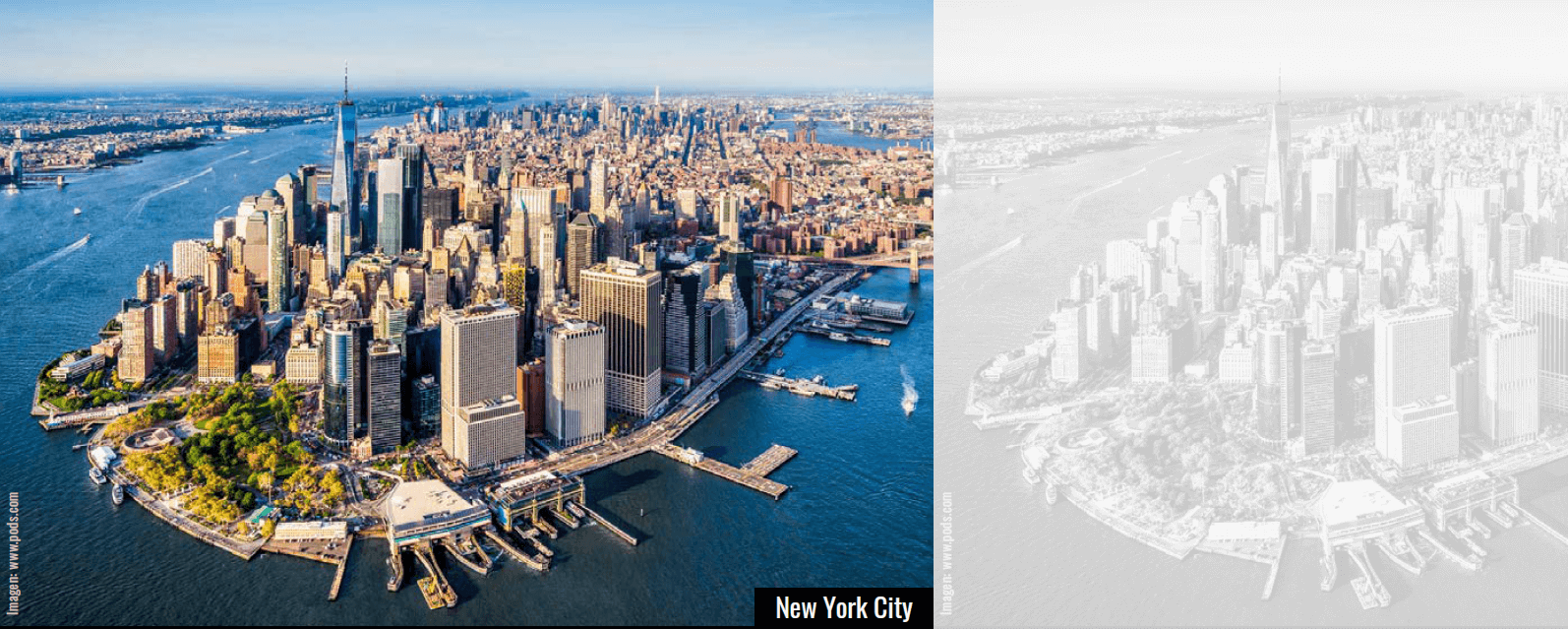
 Five animal-shaped wooden instruments:
Big Cat Harmonica, Songbird
Kazoo, Leaping Fish Rain Stick, Big
Jaguar Shaker, and Blue Bird Whistle.
www.uncommongoods.com
Five animal-shaped wooden instruments:
Big Cat Harmonica, Songbird
Kazoo, Leaping Fish Rain Stick, Big
Jaguar Shaker, and Blue Bird Whistle.
www.uncommongoods.com
 This AI-powered
camera feeder notifies you of bird
visitors, captures their photos and
organizes them. mybirdbuddy.com
This AI-powered
camera feeder notifies you of bird
visitors, captures their photos and
organizes them. mybirdbuddy.com


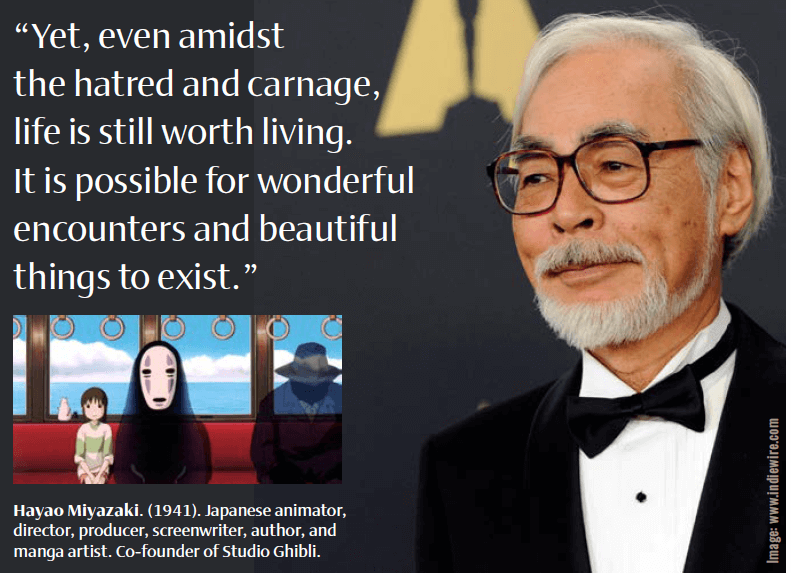 “Yet, even amidst
the hatred and carnage,
life is still worth living.
It is possible for wonderful
encounters and beautiful
things to exist.”
“Yet, even amidst
the hatred and carnage,
life is still worth living.
It is possible for wonderful
encounters and beautiful
things to exist.”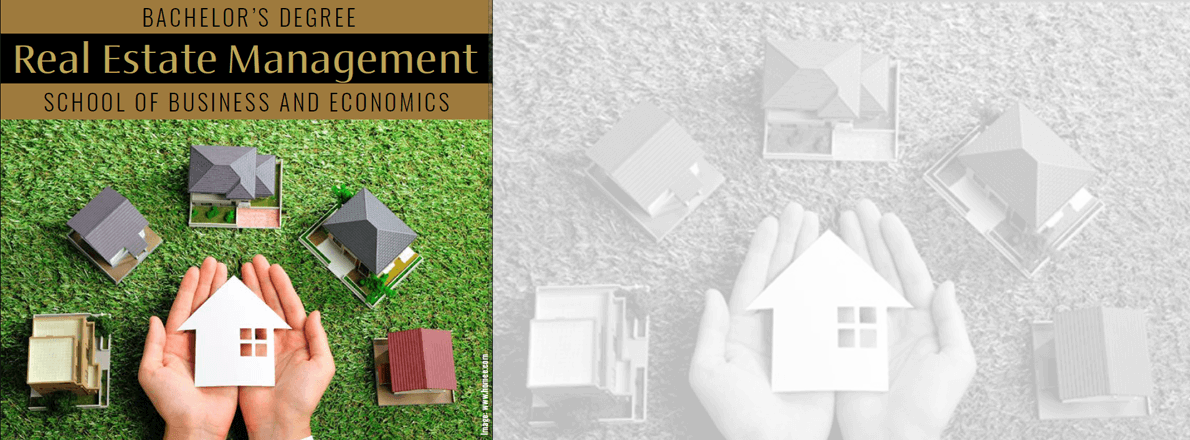 The Bachelor of Real Estate Management
program is offered online
via distance learning. After evaluating
both academic record and life experience,
AIU staff working in conjunction
with Faculty and Academic Advisors
will assist students in setting up a
custom-made program, designed on
an individual basis. This flexibility to
meet student needs is seldom found
in other distance learning programs.
Our online program does not require
all students to take the same subjects/
courses, use the same books, or
learning materials. Instead, the online
Bachelor of Real Estate Management
curriculum is designed individually by
the student and academic advisor. It
specifically addresses strengths and
weaknesses with respect to market
opportunities in the student’s major
and intended field of work. Understanding
that industry and geographic
factors should influence the content
of the curriculum instead of a standardized
one-fits-all design is the
hallmark of AIU’s unique approach
to adult education. This philosophy
addresses the dynamic and constantly
changing environment of working
professionals by helping adult students
in reaching their professional
and personal goals within the scope of
the degree program.
The Bachelor of Real Estate Management
program is offered online
via distance learning. After evaluating
both academic record and life experience,
AIU staff working in conjunction
with Faculty and Academic Advisors
will assist students in setting up a
custom-made program, designed on
an individual basis. This flexibility to
meet student needs is seldom found
in other distance learning programs.
Our online program does not require
all students to take the same subjects/
courses, use the same books, or
learning materials. Instead, the online
Bachelor of Real Estate Management
curriculum is designed individually by
the student and academic advisor. It
specifically addresses strengths and
weaknesses with respect to market
opportunities in the student’s major
and intended field of work. Understanding
that industry and geographic
factors should influence the content
of the curriculum instead of a standardized
one-fits-all design is the
hallmark of AIU’s unique approach
to adult education. This philosophy
addresses the dynamic and constantly
changing environment of working
professionals by helping adult students
in reaching their professional
and personal goals within the scope of
the degree program.
 Atlantic International University is accredited by the Accreditation Service for International
Schools, Colleges and Universities (ASIC). ASIC Accreditation is an internationally
renowned quality standard for colleges and universities. Visit ASIC’s Directory of Accredited
Colleges and Universities. ASIC is a member of CHEA International Quality Group
(CIQG) in the USA, an approved accreditation body by the Ministerial Department of the Home Office
in the UK, and is listed in the International Directory of the Council for Higher Education Accreditation
(CHEA). The University is based in the United States and was established by corporate charter in 1998.
Atlantic International University is accredited by the Accreditation Service for International
Schools, Colleges and Universities (ASIC). ASIC Accreditation is an internationally
renowned quality standard for colleges and universities. Visit ASIC’s Directory of Accredited
Colleges and Universities. ASIC is a member of CHEA International Quality Group
(CIQG) in the USA, an approved accreditation body by the Ministerial Department of the Home Office
in the UK, and is listed in the International Directory of the Council for Higher Education Accreditation
(CHEA). The University is based in the United States and was established by corporate charter in 1998.
 In some cases, accredited colleges
may not accept for transfer courses and degrees
completed at unaccredited colleges, and some
employers may require an accredited degree as
a basis for eligibility for employment. Potential
students should consider how the above may affect
their interests, AIU respects the unique rules and
regulations of each country and does not seek to
influence the respective authorities. In the event
that a prospective student wishes to carry out any
government review or process in regards to his
university degree, we recommend that the requirements
of such are explored in detail with the relevant
authorities by the prospective student as the
university does not intervene in such processes.
AIU students can be found in over 180 countries,
they actively participate and volunteer
in their communities as part of their academic
program and have allocated thousands of service
hours to diverse causes and initiatives. AIU
programs follow the standards commonly used by
colleges and universities in the United States with
regards to the following: academic program
structure, degree issued, transcript, and
other graduation documents.
AIU graduation documents can include
an apostille and authentication from the
US Department of State to facilitate their
use internationally.
In some cases, accredited colleges
may not accept for transfer courses and degrees
completed at unaccredited colleges, and some
employers may require an accredited degree as
a basis for eligibility for employment. Potential
students should consider how the above may affect
their interests, AIU respects the unique rules and
regulations of each country and does not seek to
influence the respective authorities. In the event
that a prospective student wishes to carry out any
government review or process in regards to his
university degree, we recommend that the requirements
of such are explored in detail with the relevant
authorities by the prospective student as the
university does not intervene in such processes.
AIU students can be found in over 180 countries,
they actively participate and volunteer
in their communities as part of their academic
program and have allocated thousands of service
hours to diverse causes and initiatives. AIU
programs follow the standards commonly used by
colleges and universities in the United States with
regards to the following: academic program
structure, degree issued, transcript, and
other graduation documents.
AIU graduation documents can include
an apostille and authentication from the
US Department of State to facilitate their
use internationally.
| Dr. Franklin Valcin Presi den t/Academic Dean |
Dr. José Mercado Chief Executive Officer Chairman of the Board of Trustees |
Ricardo González, PhD Provost |
| Dr. Ricardo Gonzalez Chief Operation Officer and MKT Director |
Linda Collazo Logistics Coordinator |
AIU Tutors Coordinators: Deborah Rodriguez Amiakhor Ejaeta Amanda Gutierrez William Mora Miriam James Admissions Coordinators: Amalia Aldrett Sandra Garcia Junko Shimizu Veronica Amuz Alba Ochoa Jenis Garcia Judith Brown Chris Soto René Cordón Dr. Anderas Rissler Academic Coordinators: Dr. Adesida Oluwafemi Dr. Emmanuel Gbagu Dr. Lucia Gorea Dr. Edgar Colon Dr. Mario Rios Freddy Frejus Dr. Nilani Ljunggren De Silva Dr. Scott Wilson Dr. Mohammad Shaidul Islam |
| Dr. Miriam Garibaldi Vice provost for Research |
Carolina Valdes Human Resource Coordinator |
|
| Dr. Ofelia Miller Director of AIU |
Carlos Aponte Teleco mmunications Coordinator |
|
| Clara Margalef Director of Special Projects of AIU |
David Jung Corporate/Legal Counsel |
|
| Juan Pablo Moreno Director of Operations |
Bruce Kim Advisor/Consultant |
|
| Paula Viera Director of Intelligence Systems |
Thomas Kim Corporate/ Accounting Counsel |
|
| Felipe Gomez Design Director / IT Supervisor |
Maricela Esparza Administrative Coordinator |
|
| Kevin Moll Web Designer |
Chris Benjamin IT and Hosting Support |
|
| Daritza Ysla IT Coordinator |
Maria Pastrana Accounting Coordinator |
|
| Daritza Ysla IT Coordinator |
Roberto Aldrett Communications Coordinator |
|
| Nadeem Awan Chief Programming Officer |
Giovanni Castillo IT Support |
|
| Dr. Edward Lambert Academic Director |
Antonella Fonseca Quality Control & Data Analysis |
|
| Dr. Ariadna Romero Advisor Coordinator |
Adrián Varela Graphic Design |
|
| Jhanzaib Awan Senior Programmer |
Vanesa D’Angelo Content Writer |
|
| Leonardo Salas Human Resource Manager |
Jaime Rotlewicz Dean of Admissions |
|
| Benjamin Joseph IT and Technology Support |
Michael Phillips Registrar’s Office |
|
| Rosie Perez Finance Coordinator |
||
 The School of Business and Economics
allows aspiring and practicing
professionals, managers, and entrepreneurs
in the private and public sectors
to complete a self paced distance
learning degree program of the highest
academic standard.
The ultimate goal is to empower
learners and help them take advantage
of the enormous array of resources
from the world environment in order
to eliminate the current continuum of
poverty and limitations.
Degree programs are designed for
those students whose professional experience has been in business,
marketing, administration, economics,
finance and management.
The School of Business and Economics
allows aspiring and practicing
professionals, managers, and entrepreneurs
in the private and public sectors
to complete a self paced distance
learning degree program of the highest
academic standard.
The ultimate goal is to empower
learners and help them take advantage
of the enormous array of resources
from the world environment in order
to eliminate the current continuum of
poverty and limitations.
Degree programs are designed for
those students whose professional experience has been in business,
marketing, administration, economics,
finance and management.
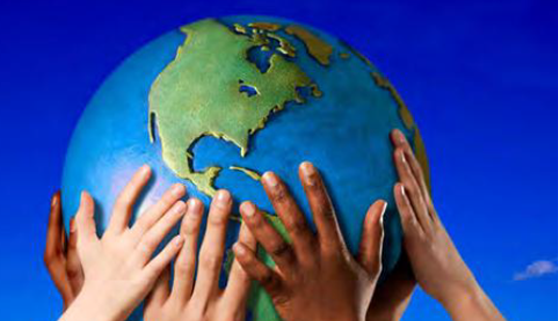 The School of Social and Human Studies
is focused on to the development of
studies which instill a core commitment
to building a society based on social and
economic justice and enhancing opportunities
for human well being.
The founding principles lie on the
basic right of education as outlined
in the Declaration of Human Rights.
We instill in our students a sense of
confidence and self reliance in their
ability to access the vast opportunities
available through information channels,
the world wide web, private, public,
nonprofit, and nongovernmental organizations in an ever expanding
global community.
Degree programs are aimed towards
those whose professional life has been
related to social and human behavior,
with the arts, or with cultural studies.
The School of Social and Human Studies
is focused on to the development of
studies which instill a core commitment
to building a society based on social and
economic justice and enhancing opportunities
for human well being.
The founding principles lie on the
basic right of education as outlined
in the Declaration of Human Rights.
We instill in our students a sense of
confidence and self reliance in their
ability to access the vast opportunities
available through information channels,
the world wide web, private, public,
nonprofit, and nongovernmental organizations in an ever expanding
global community.
Degree programs are aimed towards
those whose professional life has been
related to social and human behavior,
with the arts, or with cultural studies.
 The School of Science and Engineering
seeks to provide dynamic, integrated,
and challenging degree programs
designed for those whose experience
is in industrial research, scientific production,
engineering and the general
sciences. Our system for research and
education will keep us apace with the
twenty-first century reach scientific
advance in an environmentally and
ecologically responsible manner to allow
for the sustainability of the human
population. We will foster among our
students a demand for ethical behavior,
an appreciation for diversity, an understanding
of scientific investigation, knowledge of design innovation, a
critical appreciation for the importance
of technology and technological change
for the advancement of humanity.
The School of Science and Engineering
seeks to provide dynamic, integrated,
and challenging degree programs
designed for those whose experience
is in industrial research, scientific production,
engineering and the general
sciences. Our system for research and
education will keep us apace with the
twenty-first century reach scientific
advance in an environmentally and
ecologically responsible manner to allow
for the sustainability of the human
population. We will foster among our
students a demand for ethical behavior,
an appreciation for diversity, an understanding
of scientific investigation, knowledge of design innovation, a
critical appreciation for the importance
of technology and technological change
for the advancement of humanity.
 With access to a global catalog created and maintained collectively by more than
9,000 participating institutions, AIU students have secured excellent research
tools for their study programs.
With access to a global catalog created and maintained collectively by more than
9,000 participating institutions, AIU students have secured excellent research
tools for their study programs.